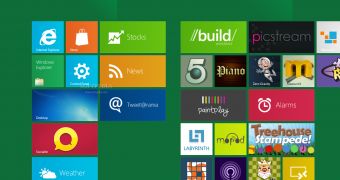Windows 8 is meant to arrive on a wider range of devices than previous flavors of the platform, including the lightweight and highly mobile tablet PCs; yet, it seems that the client might not prove as successful as intended in this market segment.
Microsoft has already made all of the necessary preparations for making the platform compatible with devices that are attracting users the most, but this might not be enough to ensure platform’s success, Forrester suggests.
When released, Windows 8 will benefit from support on SoC/ARM processors, which should result in devices being launched on shelves sometime in 2013, according to some reports, and it seems that this might actually be too late for Microsoft.
Of course, Microsoft is making other changes to the platform as well, such as adding support for touch, or the launch of an application marketplace for the OS, but it still does not change the fact that tablet PCs powered by other platforms are already available on the market.
Forrester’s JP Gownder and Sarah Rotman Epps looked closer at Windows 8 tablet PCs and shared some of their findings with the world, claiming that the OS does not stand too much of a chance on the tablet market area.
“On tablets, Windows 8 is going to be very late to the party. Product strategists often look to be “fast followers” in their product markets,” JP Gownder explains in a blog post.
“Perhaps the most famous example is the original browser war of the 1990s: Microsoft’s fast-following Internet Explorer drove incumbent Netscape out of the market altogether.”
Windows 8 lands on tablets after Apple’s iOS, Google’s Android, HP’s webOS and RIM’s Tablet OS, which shows how late Microsoft actually made its first steps in a fast moving segment.
“While Windows’ product strategists can learn from these products, other players have come a long way in executing and refining their products — Apple, Samsung, and others have already launched second-generation products and will likely be into their third generation by the time Windows 8 launches,” the said blog post continues.
With such players already on the field, interest in Microsoft’s Windows platform will dim, and this is reflected by the fact that it lost the top spot in consumer’s preferences for a tablet OS. Only 25 percent of US customers dreamed of a Windows tablet in Q3 2011, down from 46 percent in Q1.

 14 DAY TRIAL //
14 DAY TRIAL //